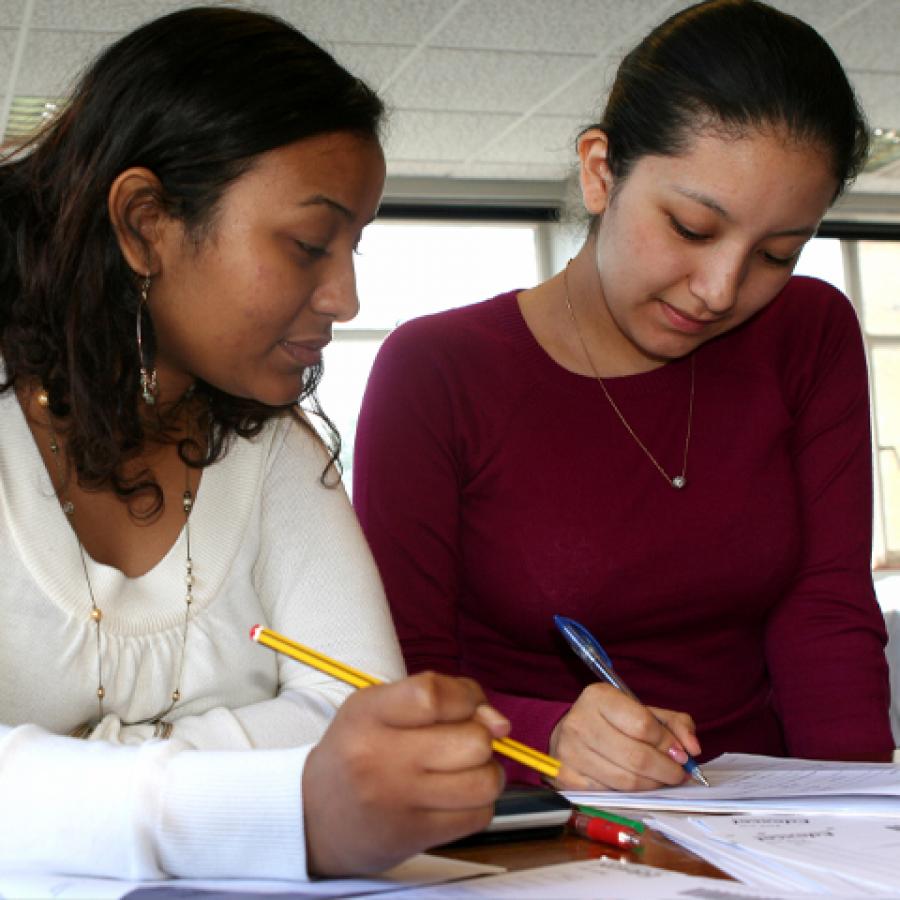Vision and Goals
The following goals emphasize the conditions we seek to create as a result of our collective work.
Create Thriving Communities
- Evaluate existing transportation projects in urban, suburban, rural, and tribal communities using health equity and environmental justice frameworks to assess the impacts of these projects.
- Empower, enhance, and resource communities to establish their own definition of equitable transportation that promotes community connectivity, safety, and self-determination.
- Develop cross-sector coalitions and partnerships with health, workforce, housing, and other organizations and agencies to ensure comprehensive approaches to multi-pronged challenges — helping communities have transportation access to affordable housing, jobs, schools, health, and community services.
- Increase, make accessible, and expand investment in community-owned bicycle-sharing, car-sharing, and other micro-transit systems in BIPOC communities.
- Empower, enhance, and meaningfully resource equity strategies within rural and tribal transportation planning organizations (and establish them where they do not exist).
Enhance Transportation Affordability, Safety, and Accessibility
- Significantly increase funding and maximize existing funding that supports enhanced public transportation service, safe biking and walking infrastructure, and accessible sidewalks — particularly in historically marginalized communities.
- Expand existing fare-free transit programs and increase funding for community-based research, education, and implementation of additional fare-free programs.
- Ensure emerging mobility services (e.g. bike share, car share, scooter share, etc.) are accessible to people with disabilities, provide low-income options, and are distributed using equity metrics throughout any geographic area.
- Lower the barriers to entry for electric vehicle purchase incentives and clean mobility programs.
- Eliminate the reliance on transportation-related punitive fees by introducing means-based fines and expanding “ability to pay” programs.
Cultivate Reparative Investment
- Repair and improve aging transportation infrastructure, avoid creation or expansion of highways that have disconnected historically disadvantaged communities, and invest in public and active transportation infrastructure.
- Ensure funding for new and existing transportation infrastructure investments is aligned with equity goals for economic inclusion and reimagined communities.
- Improving safety by strengthening funding to community-based transportation safety approaches and reducing over-reliance on punitive law enforcement strategies.
- Invest in transportation options to improve mobility and connectivity within and between urban, rural, and suburban communities, ensuring that BIPOC communities can access affordable transportation — particularly supporting communities that navigate across regions to access jobs, housing, health care and community networks.
- Invest in climate-resilient transportation technologies, vehicles, and infrastructure (e.g. electric vehicles, zero-emission public transportation, pedestrian and bicycling infrastructure) in BIPOC communities.
Promote Generative Jobs and Wealth Creation
- Establish and uphold job quality protections and standards, including prevailing wages, benefits, and health and safety guarantees across the transportation sector.
- Ensure guaranteed job training, career pathways, and ownership opportunities for Black, Indigenous, people of color, people with disabilities, refugees and racialized immigrants, and formerly incarcerated and justice-impacted individuals to access employment opportunities associated with manufacturing, building, maintaining, repairing, and operating our nation’s transportation systems.
- Strengthen, enforce, and tie federal funding to compliance with contracting goals for disadvantaged business enterprises to ensure business owners of color have opportunities to create wealth in their communities.
- Ensure safe, accessible, and affordable public transportation access to employment centers or job hubs and bring these employment centers to neighborhoods most in need of increased job creation.
Demand Government Transparency and Accountability
- Establish criteria and align federal funding to national transportation outcomes such as improved mobility for people and goods, access, transit ridership, health and safety, as well as reduced household costs, carbon emissions, and vehicle miles traveled.
- Establish an accountability metric system for agencies to ensure transportation projects embed housing, community development, and environmental sustainability goals.
- Actively monitor civil rights provisions to ensure fair and equitable access to the benefits of our transportation system, and prevent disproportionate negative impacts on marginalized communities.
- Promote approaches that center equity and safety when deciding priorities of new projects, policies, and programs.
- Center anti-displacement and affordable housing, cultural equity, generative jobs, and community development in transportation-decision making and investments.
- Improve accountability and public engagement in metropolitan planning organizations, state departments of transportation, and all spaces where decisions are made about transportation (e.g. transit agencies, city governments, etc.), especially for tribal communities and other historically marginalized communities.
Our Policy Priorities
In the fall of 2023, a core group of Transportation Equity Caucus members convened in Chicago to reflect on the Caucus’ history, discuss our current state, and dream up a vision for our future. As a result of this strategically facilitated meeting and a consultant-led programmatic reset process, we developed a broad set of policy priorities and strategies for 2024 and beyond.
This policy platform will guide our work on federal, state and local policy towards winning on equity and improving transportation outcomes for the 100 million people in the United States living in poverty. As we further develop our policy platform, the information below will change to reflect input from all levels of the caucus and the current landscape.
For example, with the current federal administration’s priorities around racial equity and all the federal infrastructure resources, this is a critically important moment to influence federal, state and local decisions around policy and budgeting that will have lasting impacts on low-income communities and communities of color.
Federal Policy Priorities for 2024
| Priorities | Strategies |
|---|---|
| Identify and advocate for specific climate and equity-centered and transformative programs and funding in the 2026 Transportation Reauthorization bill | Ensure the inclusion, protection, and strengthening of Justice40 and other equity oriented programs in the Reauthorization process |
| Ensure maximum funding for existing climate and equity-focused transportation programs through budget advocacy/appropriations | Protect, enhance and strengthen equity oriented programs such as Healthy Streets, Thriving Communities and Neighborhood Access, Reconnecting Communities and Neighborhoods, and equity initiatives such as USDOT’s Equity Action Plan and Advisory Committee on Transportation Equity during the federal appropriations processes |
| Ensure regional transportation funding for multi-modal and transit investments maximize the economic potential of the 100 million people living at or below the federal poverty guidelines, improve their safety outcomes, and prevents physical displacement | Work with USDOT to redistribute the current 80/20 funding formula and incorporate equity standards for funding distribution, and advocate for sustainable and climate just high-capacity transit communities that benefit the 100 million |
State Policy Priorities for 2024
| Priorities | Strategies |
|---|---|
| Identify (or develop model) policies that provide guidance for State DOTs to develop equity standards and equity-based project prioritization | Support the development of State DOT equity based budgeting and project prioritization standards |
| Identify (or develop model) policies that divest from highway expansion and prioritize active transportation and transit | Advocate for increased transportation funding for public transit, and advocate for reform of the current funding allocations that the states make. |
| Identify (or develop) accountability processes and metrics to track state transportation spending | Advocate for increased transparency and accountability mechanisms for state DOTs (e.g. State Transportation Equity Committees modeled after USDOT ACTE) |
In 2024 we restructured the work groups to enable us to more effectively advance our policy priorities The 2024 work groups and their co-lead organizations are as follows:
- The Federal Policy Work Group is co-led by Natural Resources Defense Council and Rails to Trails Conservancy.
- The State & Local Policy Work Group is co-led by Center for Neighborhood Technology and Evergreen Action.
- The Narrative & Movement Building Work Group is co-led by National Organization for Youth Safety and Livable Streets Alliance.


